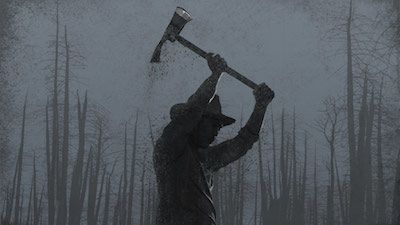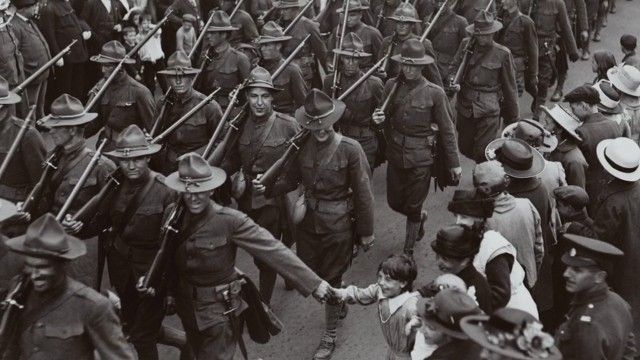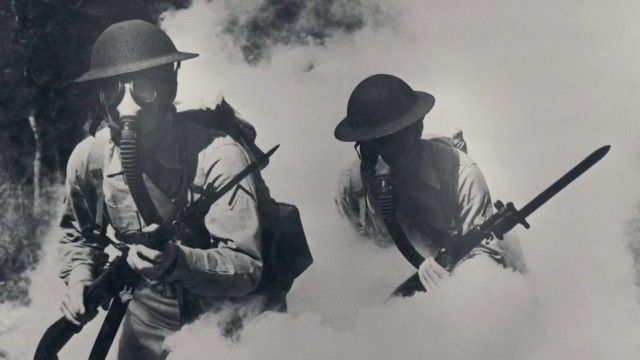The BEST episodes written by Stephen Ives
#1 - 1964
American Experience - Season 26 - Episode 5
Recalling 1964, a pivotal year in U.S. history. While the Beatles captured the imaginations of the nation's youth, President Lyndon B. Johnson signed the Civil Rights Act, unveiled his vision of a "Great Society" and squared off against Barry Goldwater in the presidential election. Also covered: the murders of three Freedom Summer volunteers; and the influence of Betty Friedan's "The Feminine Mystique." Based in part on Jon Margolis' "The Last Innocent Year: America in 1964."
Watch Now:Amazon
#2 - The Big Burn
American Experience - Season 27 - Episode 5
In the summer of 1910, hundreds of wildfires raged across the Northern Rockies. By the time it was all over, more than three million acres had burned and at least 78 firefighters were dead. It was the largest fire in American history.
Watch Now:Amazon#3 - Custer's Last Stand
American Experience - Season 24 - Episode 2
A profile of Gen. George Armstrong Custer (1839-76), nicknamed "the boy general" for his Civil War exploits, who died with many other members of the 7th Cavalry while battling the Cheyenne and Lakota along the Little Bighorn River in Montana Territory. The documentary details his time at West Point, where he became infamous for his rebellious nature; his relationship with his wife Libbie; his year-long suspension from the service; and the campaign against the Cheyenne that led to his death.
Watch Now:Apple TV
#4 - The Great War (1)
American Experience - Season 29 - Episode 8
Explore America's tortured, nearly three-year journey to war. In August 1914, a war unprecedented in size and violence broke out on the European continent. Ever the idealistic diplomat, Wilson vowed to keep his country out of "the Great War." His neutrality was supported but reports from Europe began to challenge America's delicate position. From behind the battle lines came reports detailing German atrocities in Belgium and France: history's first chemical attack and the sinking of the British liner Lusitania, killing 128 Americans. But Wilson stood firm, asserting that America would not fight - this was not her war. Despite Wilson's pleas, American men and women, volunteered in the hospitals and on the fighting fields of France, and by 1916, there was a growing sense that the war was coming closer to home. On April 2, Wilson asked a joint session of Congress for a declaration of war against Germany, proclaiming that "the world must be made safe for democracy.
#5 - Grand Coulee Dam
American Experience - Season 24 - Episode 6
Featuring the men and women who lived and worked at Grand Coulee in the wake of the Great Depression and the Native people whose lives were changed alongside historians and engineers, this film explores how the tension between technological achievement and environmental impact hangs over the project's legacy.

#6 - The Great War (2)
American Experience - Season 29 - Episode 9
Chart America's entry into the conflict, examining the breathtaking speed of mobilization and the profound transformations required if America was to play a central role in the Great War. In 1917, the U.S. was deeply divided about going to war. Wilson hired former journalist George Creel to lead an unprecedented propaganda campaign to support the war. But for those who resisted the patriotic fervor, the consequences could be severe. Repressive legislation clamped down on free speech and almost any form of dissent. There was rampant vigilantism, and deep racial divisions still existed. Although controversial at first, in the end, more than four million men served in America’s first mass conscripted army, their ranks reflected the teeming racial and socio-economic diversity of 20th-century America. In the summer of 1918, the Americans arrived in France just as the Germans were on the outskirts of Paris. And soon, the wave of death and misery that Wilson had so feared was coming to pass.